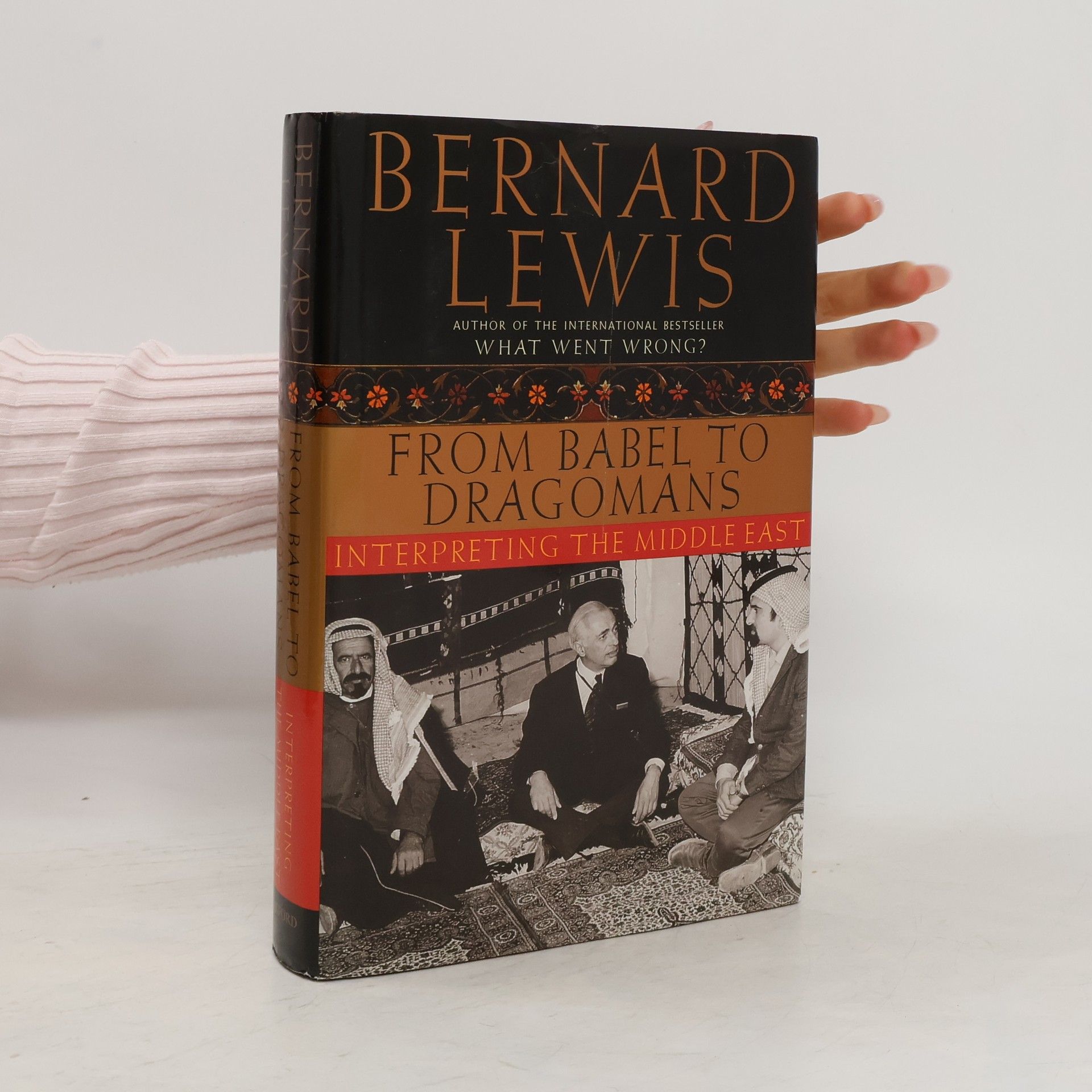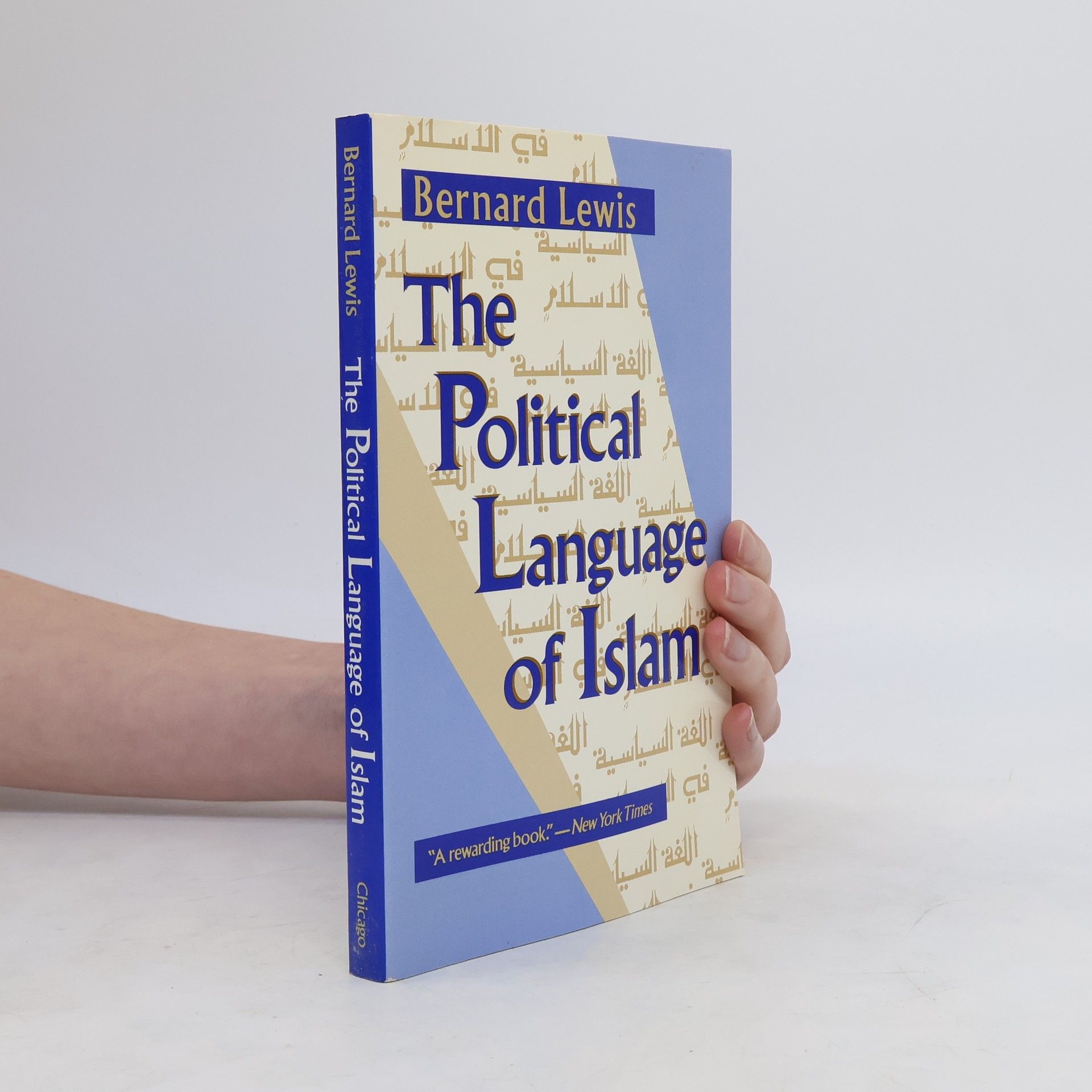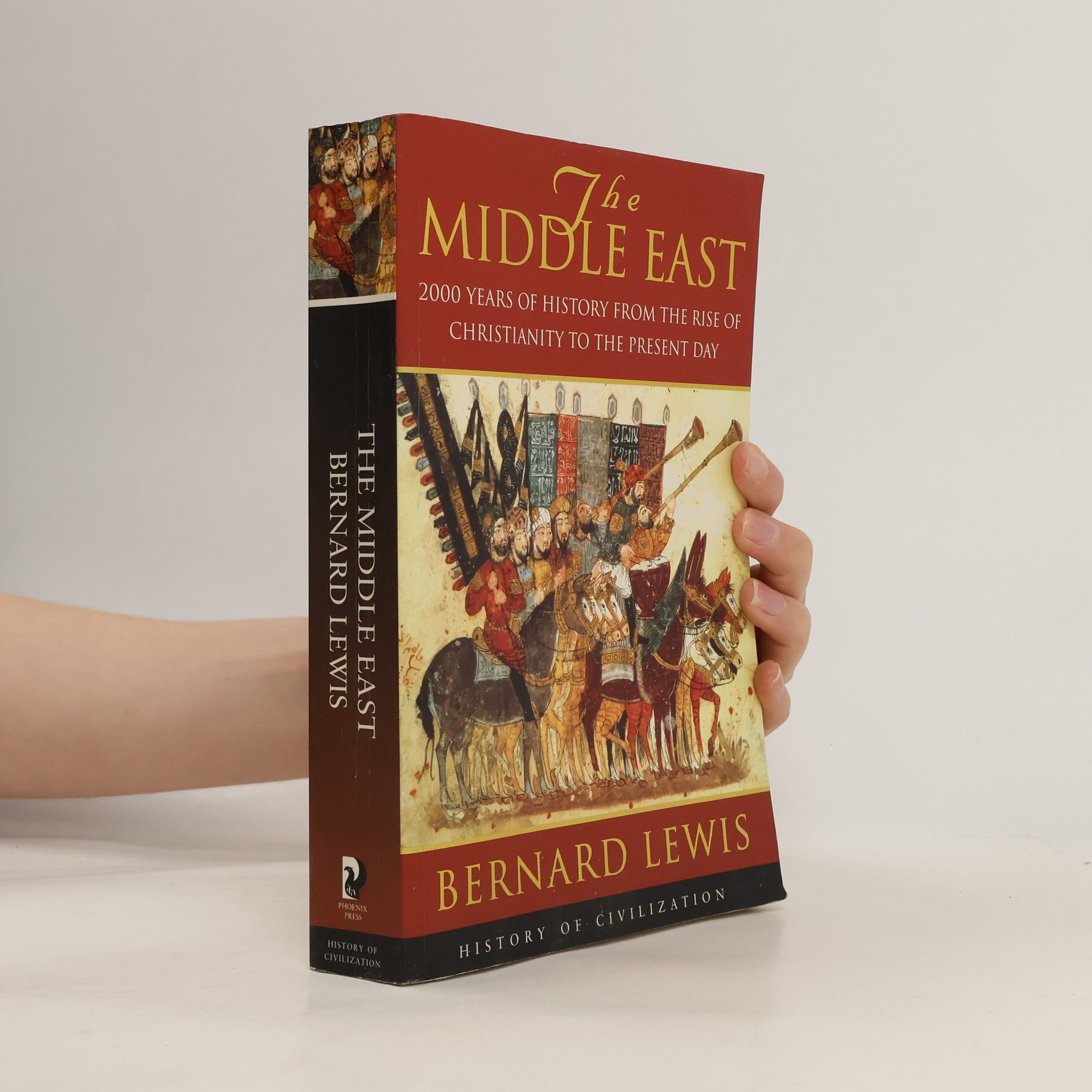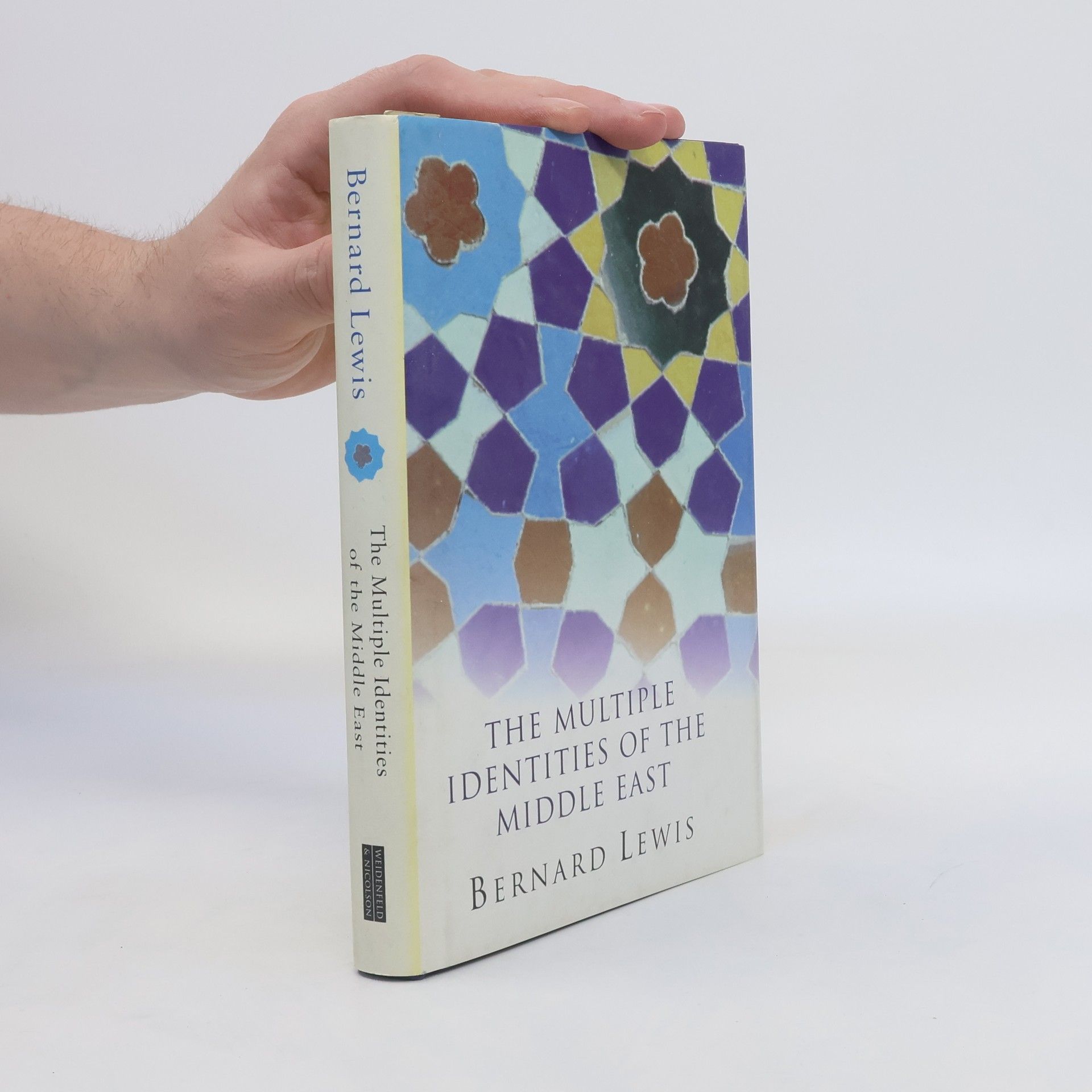The astonishing story of Henry Coombe-Tennant (1913-89), who served in the British Army in World War II, escaping from a POW camp, joining Special Forces and aiding the French Resistance, before working for the British Secret Service in Baghdad and ending his days as a Benedictine monk!
Bernard Lewis Libros
Bernard Lewis fue un renombrado historiador especializado en Oriente Medio, cuyas influyentes obras exploraron la compleja historia de la región y sus desafíos contemporáneos. Abordó el tema con una profunda comprensión de sus dinámicas culturales y políticas, ofreciendo análisis perspicaces que resonaron ampliamente. Los escritos de Lewis se caracterizan por su rigor académico y su capacidad para iluminar intrincadas narrativas históricas para un público amplio. Sus contribuciones moldearon significativamente la comprensión de los asuntos de Oriente Medio a nivel mundial.

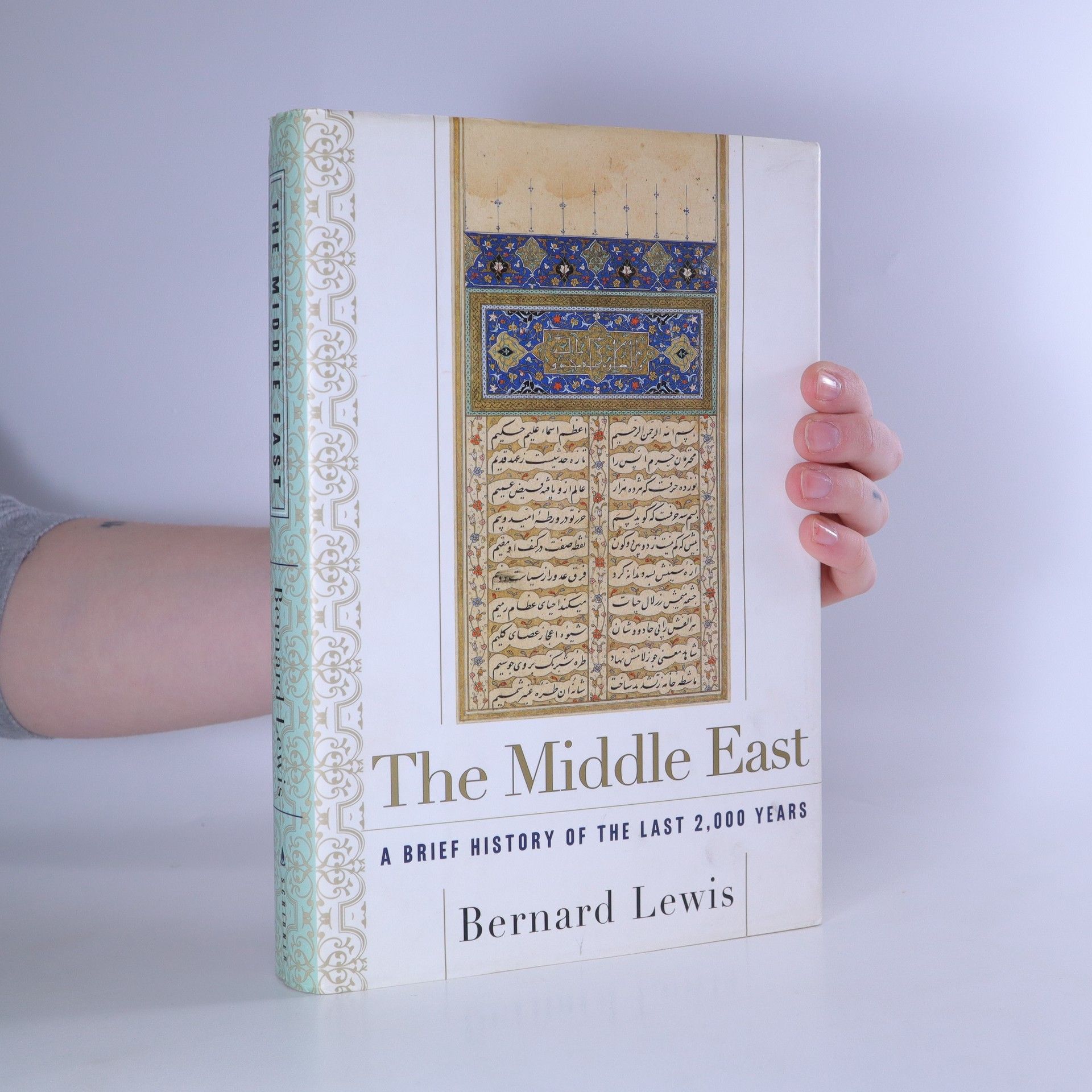
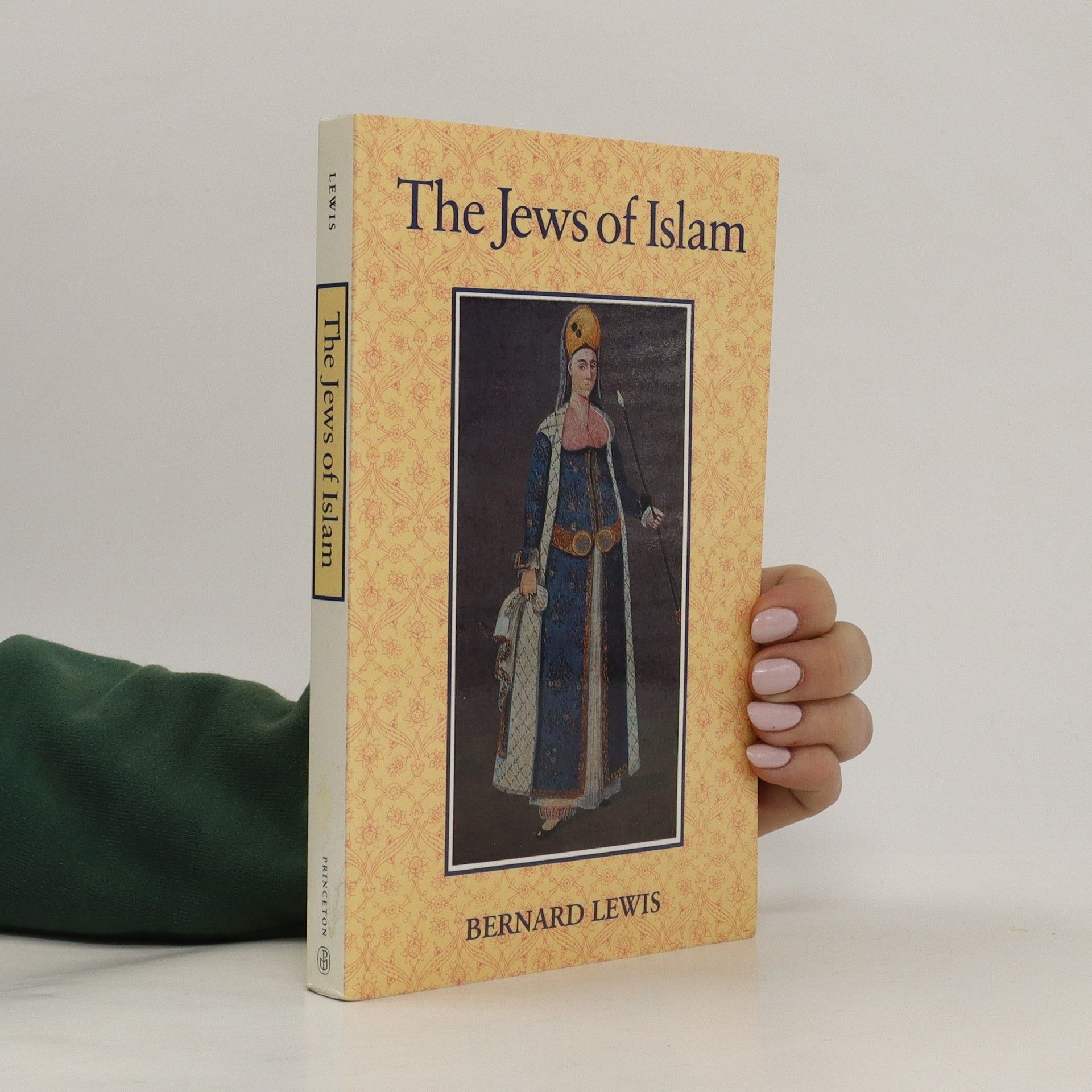
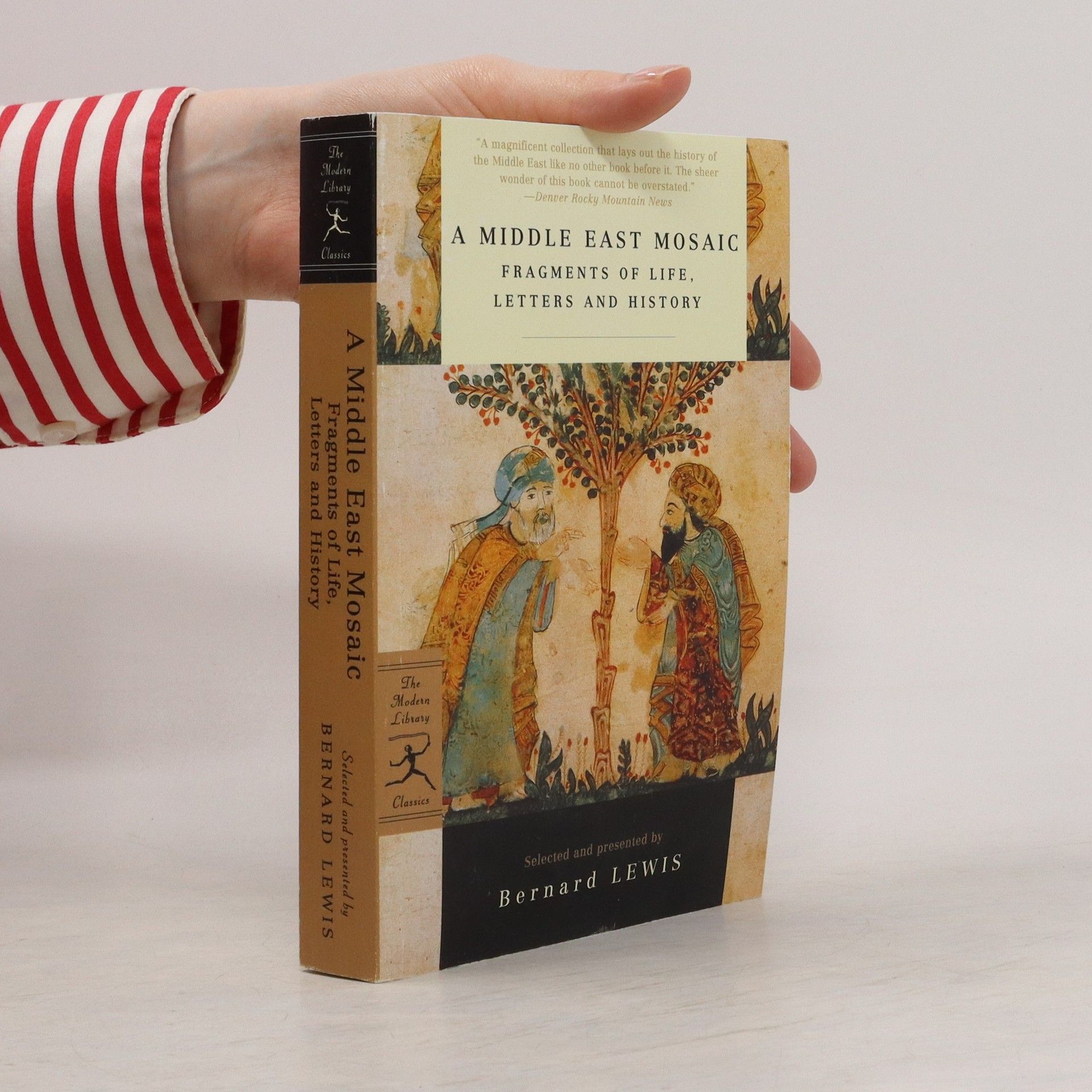
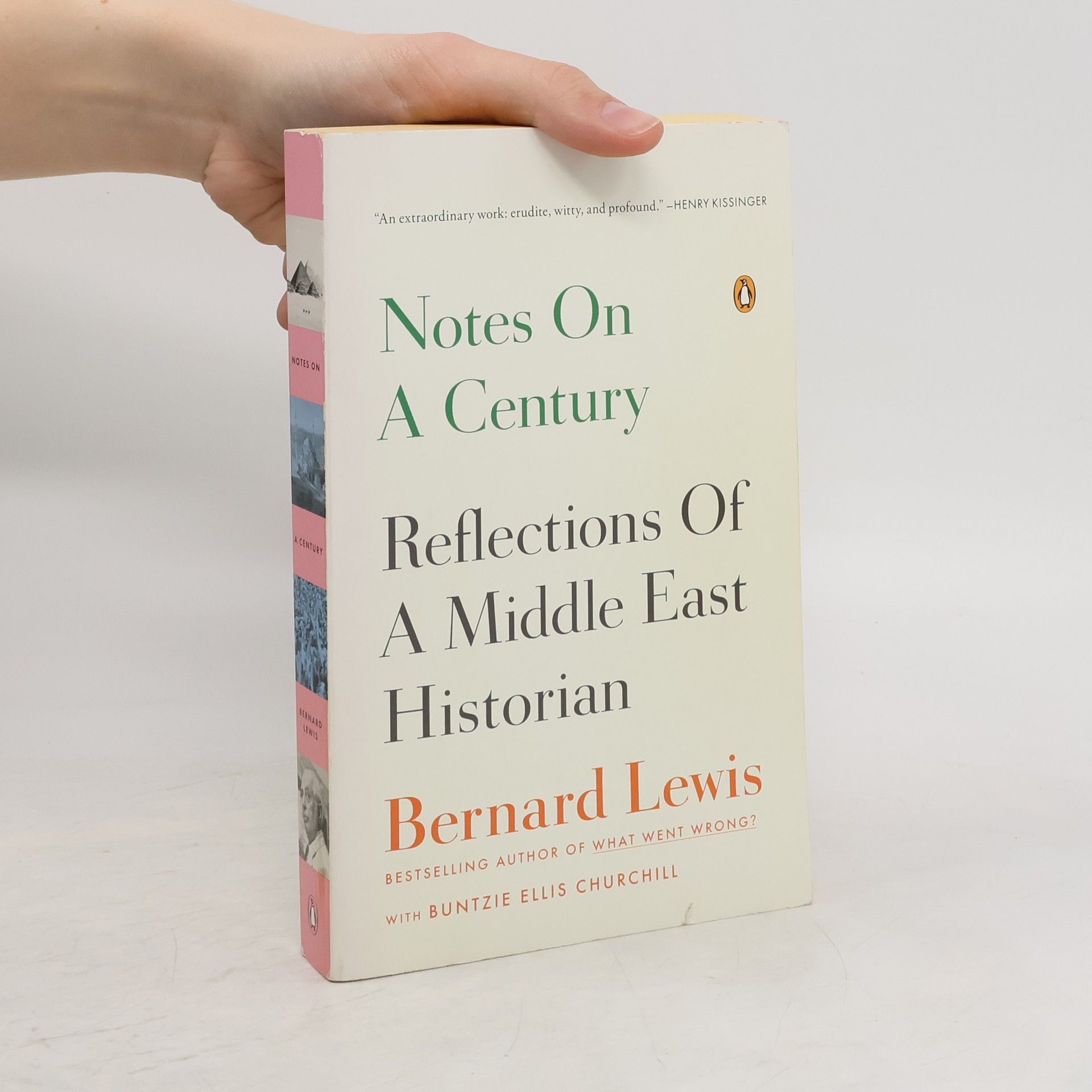


Political Words and Ideas in Islam
- 200 páginas
- 7 horas de lectura
Exploring Islamic political thought, this collection features 11 essays by Bernard Lewis, a prominent figure in Middle Eastern studies. Renowned for his accessible writing, Lewis engages a diverse audience, including scholars, politicians, and journalists, making complex historical insights approachable for the general public. The essays reflect his deep understanding of the subject, offering valuable perspectives on the interplay between Islam and politics.
Notes on a Century: Reflections of a Middle East Historian
- 416 páginas
- 15 horas de lectura
There are few historians like Bernard Lewis, who end up as historical actors in their own right. When we think of the Middle East, we see it in terms that he defined and articulated. In this exceptional memoir, the bestselling author of What Went Wrong? shares stories of his wartime service in London and Cairo as an intelligence officer for MI6. After the war, he was the first Western scholar to enter the Ottoman archives. He explains how he coined the phrase "clash of civilizations" in the 1950s, long before anyone imagined that political Islam would one day pose more of a threat than communism. Then September 11 catapulted him onto the world stage. Notes on a Century chronicles a time of spectacular upheaval in the Middle East-from the Second World War and the founding of Israel to the Iranian Revolution and the Arab Spring. Book jacket.
In times of war and in peace, from the earliest days of the Roman Empire to our own, Westerners have traveled to the lands of the Middle East, bringing back accounts of their adventures and impressions. But it was never a one-way journey. In this spirited collection of Western views of the Middle East and Middle Eastern views of the West, Bernard Lewis gives us a rich overview of two thousand years of commerce, diplomacy, war and exploration. We hear from Napoleon, St. Augustine, T. E. Lawrence, Karl Marx and Ibn Khaldun. We peer into Queen Elizabeth's business correspondence, strike oil with Freya Stark and follow the footsteps of Mark Twain and Ibn Battuta, the Marco Polo of the East. This book is a delight, a treasury of stories drawn not only from letters, diaries and histories, but also from unpublished archives and previously untranslated accounts.
The Jews of Islam
- 262 páginas
- 10 horas de lectura
Portrays the Judaeo-Islamic tradition - a cultural relationship parallel to the Judaeo-Christian heritage. This book traces its origins in the early Middle Ages, its flowering, and its ending, followed by the incorporation of most of the Jews of Islamic countries into the state of Israel. It examines the relations of Islam and other religions.
The Middle East. A Brief History of the Last 2000 Years.
- 448 páginas
- 16 horas de lectura
A 2000-year history of a region stretching from Libya to Central Asia ; concludes with the effects of the Gulf War.
From Babel to Dragomans
- 438 páginas
- 16 horas de lectura
Bernard Lewis, a distinguished scholar fluent in multiple languages, has significantly contributed to the understanding of Islam, the Ottoman Empire, and the modern Middle East for Western audiences. This collection compiles his reflections on Middle Eastern history and foreign affairs spanning six decades. The essays explore various topics, including pan-Arabism, the Mughal and Ottoman empires, and the dynamics between Western powers and the Middle East. They also delve into travel experiences, culinary traditions, and the challenges of documenting Middle Eastern history. Key events of the twentieth century, such as the rise of modern Israel, the Iranian Revolution, and the Gulf War, are examined alongside pressing issues like the conflicts in Iraq and Afghanistan, and the roles of figures like Saddam Hussein and Osama bin Laden. The collection features a mix of English originals, previously unpublished writings, and notable essays from esteemed publications like Foreign Affairs and The New York Review of Books. With over fifty pieces accompanied by a personal memoir from Lewis, this anthology serves as an invaluable resource for anyone interested in the complexities of the Middle East, offering deep insights into its history, culture, politics, and contemporary issues.
The Political Language of Islam
- 184 páginas
- 7 horas de lectura
Discuss the Islamic Scriptures that form the basis for its political language, looks at the changes in modern Islamic politics, and analyzes the transformation of political terms.
In this immensely readable and wide ranging book,Bernard Lewis charts the successive transformations of the Middle East,beginning with the two great empires,the Roman and the Persian,and covering the growth of Christianity,the rise and spread of Islam,the waves of invaders from the east,the Mongol hordes of Jengiz Khan,the rise of the Ottoman Turks,and the changing balance of power between the Muslim and Christian worlds.THE MIDDLE EAST is a brilliant survey of the history and civilisations of the region.
The Multiple Identities of the Middle East
- 176 páginas
- 7 horas de lectura
Most of the modern states of the Middle East are of recent origin, yet the region is the birthplace of three religions and many civilizations. Bernard Lewis, one of the world's most respected historians of the Middle East, discusses the countries and frontiers; their religions and communities; language and loyalties to place, and Middle Eastern perceptions of outsiders. He also considers the effect of alien ideas and influences including liberalism, nationalism, fascism, socialism and democracy.
